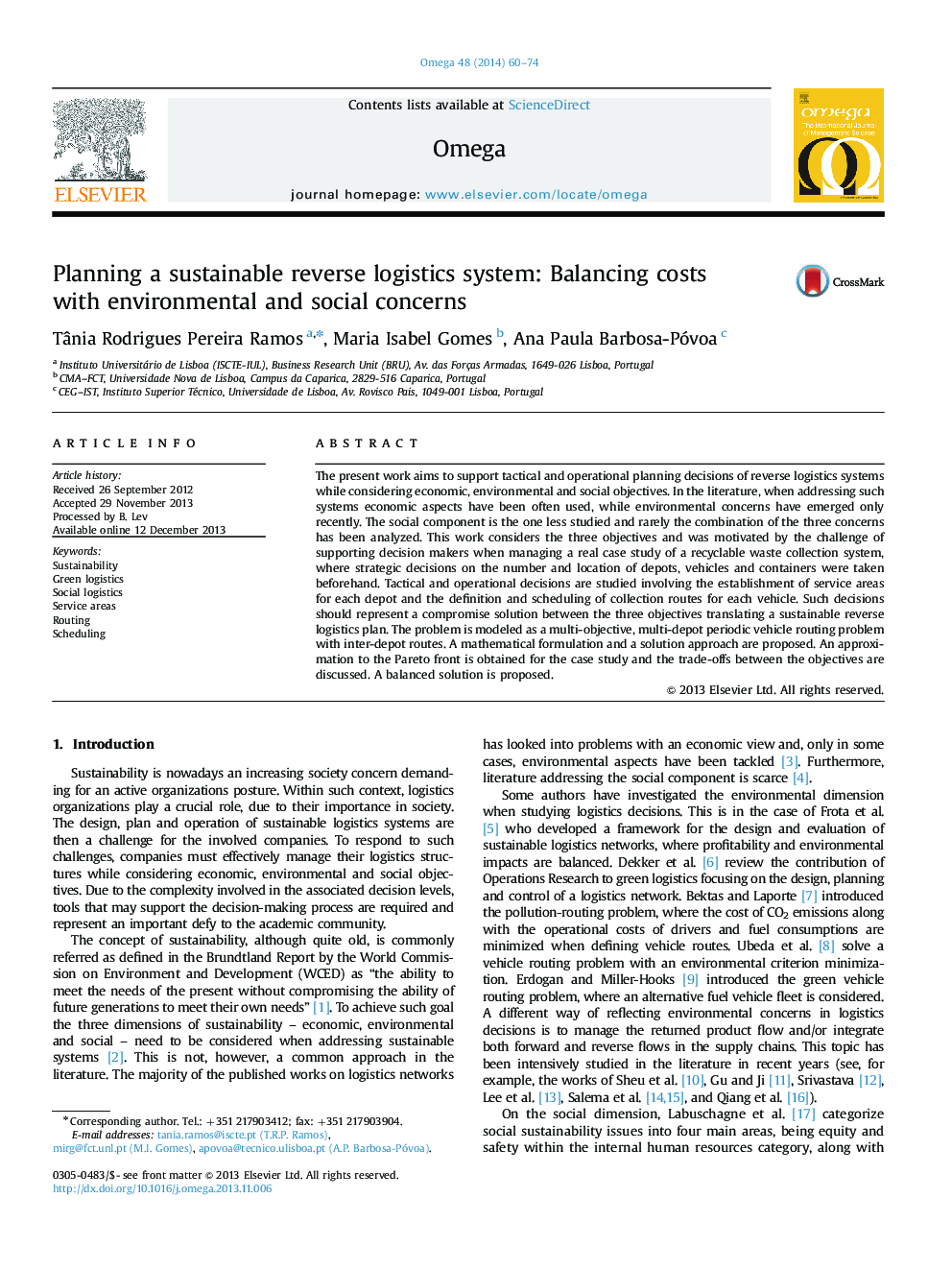| Article ID | Journal | Published Year | Pages | File Type |
|---|---|---|---|---|
| 1032689 | Omega | 2014 | 15 Pages |
•Economical, environmental and social objectives are considered in logistics decisions.•Decisions on service areas definition, routing and scheduling are tackled.•A multi-objective solution approach based on MILP models is developed.•A real recyclable waste collection system case is solved and trade-offs discussed.•A compromise solution is proposed, supporting a sustainable reverse logistics plan.
The present work aims to support tactical and operational planning decisions of reverse logistics systems while considering economic, environmental and social objectives. In the literature, when addressing such systems economic aspects have been often used, while environmental concerns have emerged only recently. The social component is the one less studied and rarely the combination of the three concerns has been analyzed. This work considers the three objectives and was motivated by the challenge of supporting decision makers when managing a real case study of a recyclable waste collection system, where strategic decisions on the number and location of depots, vehicles and containers were taken beforehand. Tactical and operational decisions are studied involving the establishment of service areas for each depot and the definition and scheduling of collection routes for each vehicle. Such decisions should represent a compromise solution between the three objectives translating a sustainable reverse logistics plan. The problem is modeled as a multi-objective, multi-depot periodic vehicle routing problem with inter-depot routes. A mathematical formulation and a solution approach are proposed. An approximation to the Pareto front is obtained for the case study and the trade-offs between the objectives are discussed. A balanced solution is proposed.
